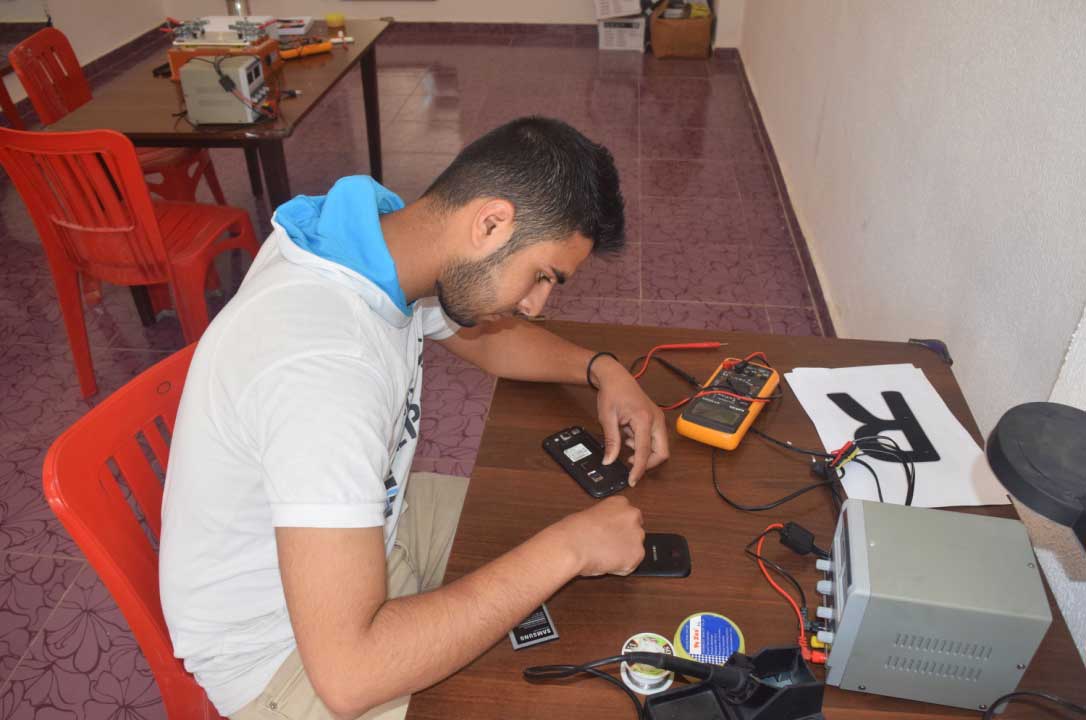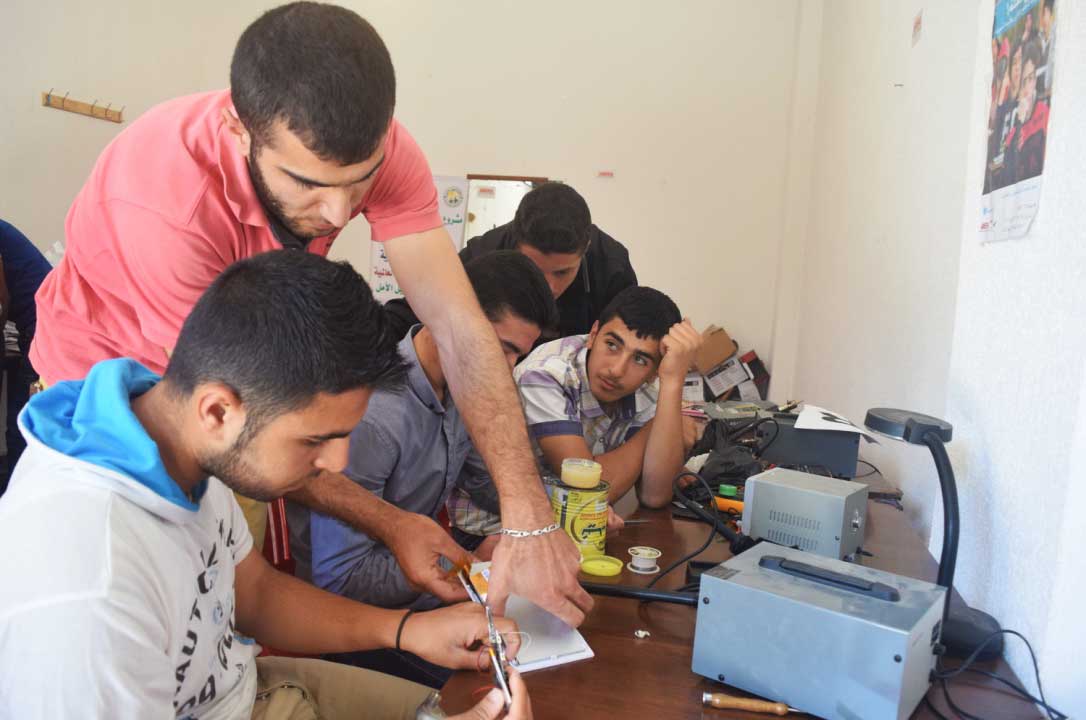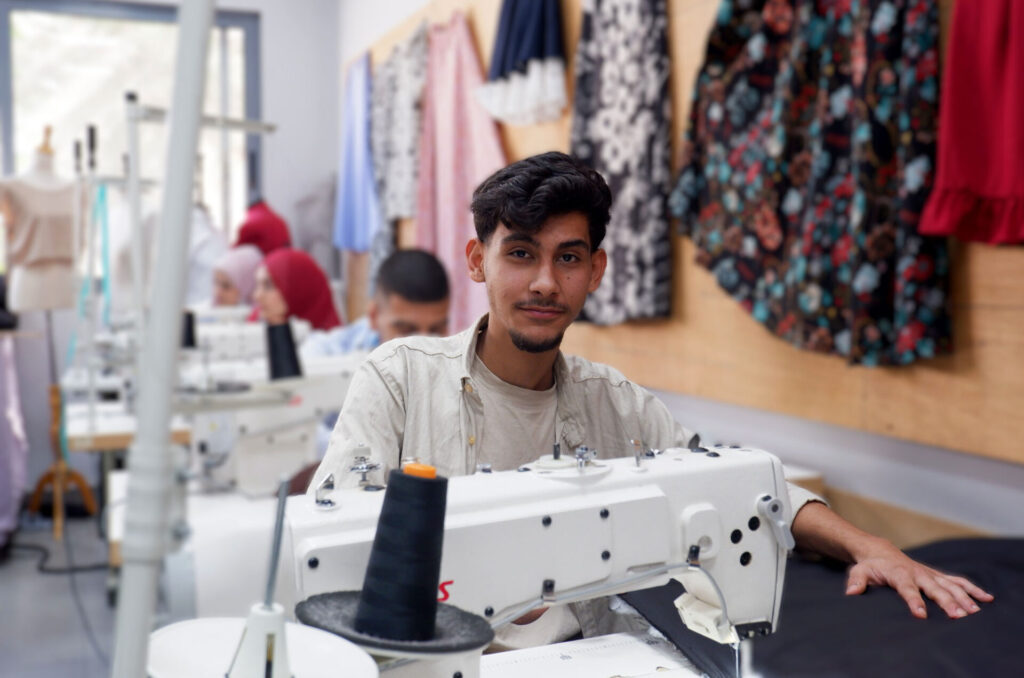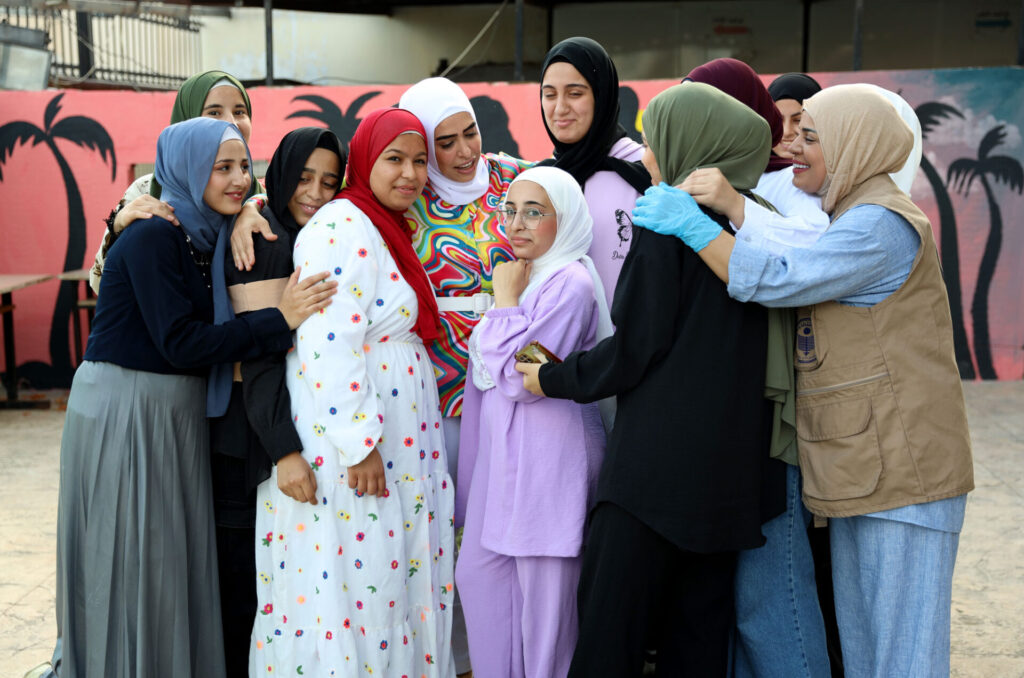Jul, 2016
When Fares al-Ali, 16, left war-torn Syria two years ago, leaving everything behind, he thought that his life would be reduced to small jobs to help his family settle in Lebanon.
That was before he found Anera’s UNICEF-funded refugee education program that trains youths in practical job skills.
Fares fled the Syrian city of Aleppo in 2014 with eight members of his family. The Ali family settled in Fneidek, in the north Lebanon district of Akkar, one of the most deprived rural regions of the country.
“As soon as we arrived, I had to search for a job to help my father feed the family. I had to work day and night in a nearby restaurant. Sometimes I had to sleep there, because there was so much to do,” said Fares.
Fares Forges a Brighter Future in Anera Classes
“When I heard about the training courses, I immediately signed up for the sessions on phone maintenance. I wanted to study again, improve my skills, and achieve my goals,” he added with enthusiasm.
Anera offers 130 courses, with the help of 33 partners. Lebanese, Palestinian, and Syrian boys and girls can enroll in a diverse range of studies, from hairdressing to electric wiring and sewing to first aid. There were 25 students – Syrian refugees and Lebanese teens – in the Fneidek training courses on phone maintenance.
“Fares is a brilliant and a clever student. He always wanted to learn more and never hesitated to ask questions”, said Mohammad Taleb, the phone repair instructor.


Six graduates of the vocational training course opened a small phone repair shop in the area. Anera is assisting with the rent for the first few months, while they get established.
“This industry does not require a lot of complicated, expensive equipment for repairs. Technicians can remove the damaged part of a cell phone and replace it with a new part,” explained Taleb.
“We can repair iPhone, Samsung and Sony phones here. We can handle screen, water and cosmetic damage as well as other functional repairs. We also replace batteries, of course,” said Fares, pointing to the different phone repair machines in the shop. “I am living my dream every day now. And I am inspired to pursue it until I can open a shop in Syria when the war ends.”


“I am living my dream every day now. And I am inspired to pursue it until I can open a shop in Syria when the war ends.”


Refugee Youth Build Community in Vocational Classes
A few kilometers from Fneidek, in the village of Meshmesh, Ghalia Taleb talked proudly about training courses she leads to help Lebanese and Syrian refugee youth become professionals in hairdressing and cosmetology. During the courses, students also build confidence and make new friendships.
Students who completed the barber course organized an event for Meshmesh public school students. Thirty children got free haircuts! Everybody loved it,” said Ghalia, head of Akkar Beytouna.
“During the sessions, strong ties were also established between Lebanese and Syrian youths. Now we’re not seeing as much tension between the groups.”
“I consider myself a good barber now. But with time, I’m sure I’ll be excellent and the whole village will talk about my skills,” said Oudai Hussein, a 16-year-old Lebanese, who is still pursuing his studies at the public school of the village.
Most of the students are now practicing their hairdressing skills on family members, neighbors or friends. “I volunteer my services now, but soon I’ll start my permanent job,” says Oudai. “These courses have given me solid skills for finding a job.”
Riham al-Mohammad, a 17-year-old Syrian refugee from Homs, attended the training courses on personal beauty for women. She also practices her new skills on her friends and neighbors. “My parents were reluctant at first to allow me to join the courses. Now they are proud of me because I learned something new which will help me build a good future,” she said with a smile.


